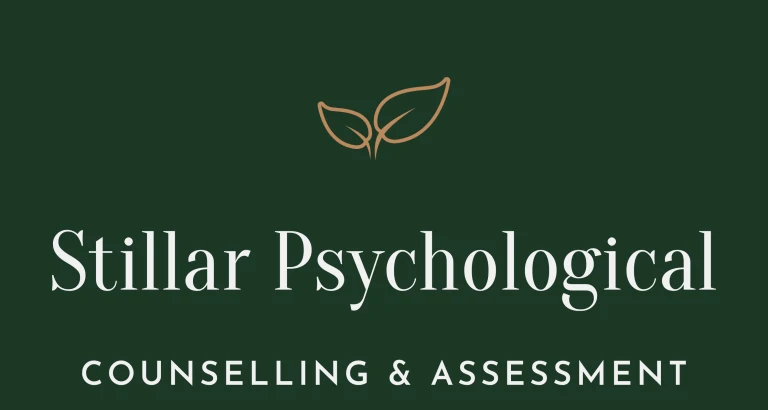As a parent, watching your child struggle with focus, impulsivity, or emotional regulation can be both confusing and concerning. You might find yourself wondering: Is this just typical childhood behavior, or could it be something more?
Attention Deficit Hyperactivity Disorder (ADHD) is a common condition that affects millions of children, yet the signs often get overlooked or misunderstood.
If you’re noticing that your child’s challenges are affecting their schoolwork, friendships, or overall well-being, you might be considering an ADHD assessment for your child. Understanding the evaluation process can help you make informed decisions and take the first step toward getting your child the support they need.
Stillar Psychological is here to guide you through the process of ADHD testing. We offer insights into what the evaluation involves, how it can help, and what you can expect at each stage.
In this article, we’ll take you through the steps of an ADHD test for children. Let’s find out how an assessment can unlock a better understanding of your child’s needs and open the door to the right solutions.
What Is ADHD and How Does It Affect Children?
ADHD is a condition that affects a child’s ability to focus, control impulses, and manage their behavior in different settings.
Children with ADHD may find it difficult to complete tasks, follow instructions, or remain seated for long periods. In school, these challenges may lead to academic struggles, while at home, they can impact relationships with family members.
Though the exact cause of ADHD is not fully understood, genetics and environmental factors play a significant role. An ADHD evaluation for a child can help identify if the symptoms are indicative of ADHD or if another condition might be at play.
Why an ADHD Evaluation Is Necessary
When a child exhibits symptoms such as distractibility, hyperactivity, or impulsivity, it can be difficult for parents and teachers to differentiate between typical behavior and ADHD. An ADHD test provides clarity and helps determine whether the behaviors are part of the disorder or are a result of something else.
In addition to identifying the presence of the disorder, an ADHD evaluation also rules out other possible causes of the symptoms, such as anxiety, learning disabilities, or other mental health conditions.
Based on the assessment results, healthcare professionals can better understand a child’s unique needs and create a tailored plan for support and treatment.
The ADHD Assessment Process
The process of diagnosing ADHD typically involves several steps. Understanding each stage can help alleviate any stress or uncertainty, allowing you to support your child throughout the evaluation.
Initial Consultation
The first step in the evaluation is an initial consultation. During this meeting, a psychologist or clinician will gather background information from you, the parents, and sometimes from your child’s teachers. This information provides context about your child’s behaviors in different settings, such as at home and school.
Expect to discuss your child’s medical history, any past developmental milestones, and how they are performing in social and academic settings. The clinician may also ask about family history, as ADHD can run in families.
This consultation is important because it helps the clinician understand the full scope of your child’s behavior and any potential factors contributing to it.
Behavioral Observations
After gathering the background information, the clinician will observe your child’s behavior. This step involves looking at how your child interacts in a controlled setting and observing their ability to focus, stay still, and follow instructions.
These observations help professionals identify patterns and compare your child’s behaviors to typical age-related behaviors.
The psychologist may also observe your child’s interactions with you, their peers, and the clinician. This helps paint a clearer picture of how your child operates in social contexts.
Standardized Questionnaires and Assessments
To further understand your child’s behaviors, standardized questionnaires are often used. These tools assist in gauging your child’s behavior in various settings and situations.
Teachers and parents will typically be asked to complete these questionnaires, which assess attention span, impulse control, and hyperactivity. Some of the most commonly used questionnaires include the Conners Rating Scale and the Vanderbilt Assessment Scales. These tools help provide objective data on your child’s behavior across multiple settings.
Additionally, your child may be given tasks designed to measure attention and impulsivity, which are among the major areas affected by ADHD. These assessments allow the clinician to better understand your child’s cognitive and emotional functioning.
Additional Assessments
In some cases, the clinician may recommend additional assessments if they suspect that the ADHD symptoms may be influenced by other factors. For example, a cognitive evaluation may be performed to assess your child’s IQ and learning abilities.
Emotional and social assessments can also be used to rule out conditions like anxiety or depression, which can sometimes mimic ADHD symptoms.
The additional assessments make it possible to consider all contributing factors when making a diagnosis. This can lead to a more accurate and comprehensive understanding of your child’s needs.
What Happens After the ADHD Assessment?
Once the evaluation is complete, the clinician will review all the information gathered during the consultation, observations, and assessments. The results of these findings will then be discussed with you in detail.
Sharing the Results
In a follow-up meeting, the clinician will explain whether your child has ADHD or if the symptoms may be related to another condition. This discussion will include a breakdown of the evaluation process and what each part revealed. If your child is diagnosed with ADHD, the clinician will discuss the severity of the condition and offer a variety of treatment options.
Treatment Recommendations and Next Steps
If your child is diagnosed with ADHD, treatment recommendations may include behavioral therapy, support in the school setting, or medication. We offer a range of assessment services to guide you through every step, from diagnosis to treatment. We aim to create a supportive environment where you and your child can feel empowered to tackle the challenges ADHD may bring.
If your child does not meet the criteria for ADHD, the clinician may suggest other forms of support, such as counseling for anxiety, learning disabilities, or emotional regulation.
How Parents Can Prepare for an ADHD Evaluation
Preparing your child for an ADHD evaluation can significantly ease the process. Depending on your child’s age and temperament, the evaluation may seem intimidating.
Explain the process in a way they can understand, reassuring them that the goal is simply to understand their needs better, not to “fix” them. This can help reduce any anxiety they might feel.
Discuss the evaluation as something positive and helpful. You might even role-play or practice questions they might encounter to reduce any apprehension they may have about the process.
Let your child know that the evaluation will involve a series of activities, observations, and questions. Explain that it is not a test, and there are no right or wrong answers. This can help ease any fear of failure.
Collect relevant documents such as your child’s medical records, academic performance reports, and any notes from teachers or caregivers about their behavior.
These details will provide the clinician with a comprehensive picture of your child’s challenges and help guide the evaluation. The more context you provide, the better equipped the clinician will be to assess your child’s situation and make informed recommendations.
Get a Clear Diagnosis for the Right Support
An ADHD evaluation for a child is an important first step in understanding your child’s behavior and ensuring they receive the right support. The assessment process will help you gain clarity about whether your child has ADHD or another condition, and from there, you can receive recommendations for effective treatment.
We provide mental health services for all ages across the lifespan, supporting children, adolescents, and adults with a range of needs. Our team is ready to help you understand your child’s unique needs and provide the support necessary for their success. Reach out today to learn more about our ADHD evaluation services and how we can assist your child.





















